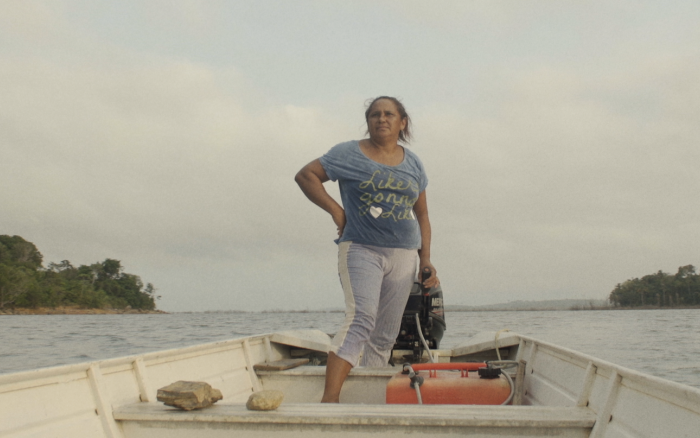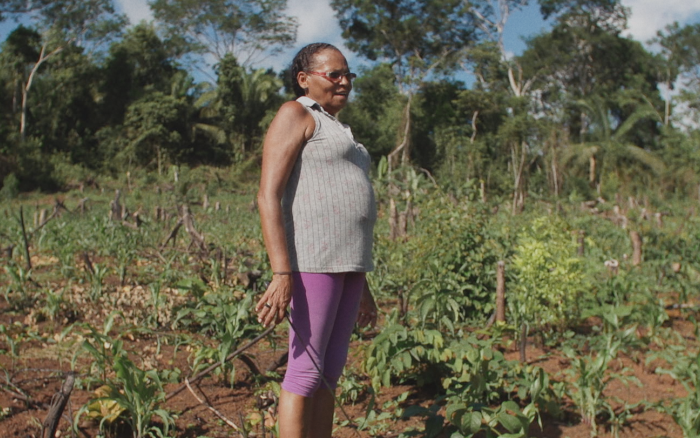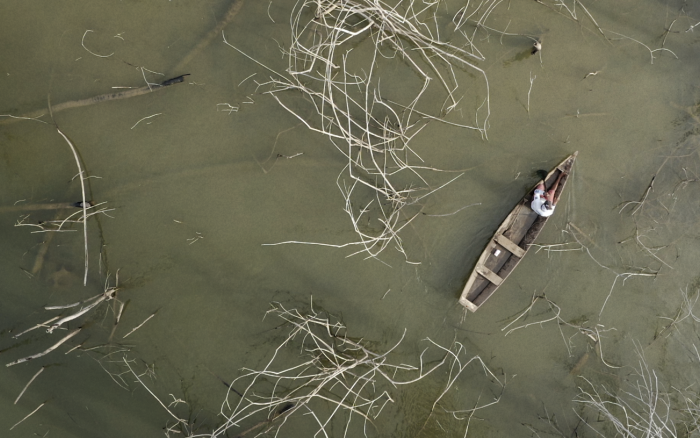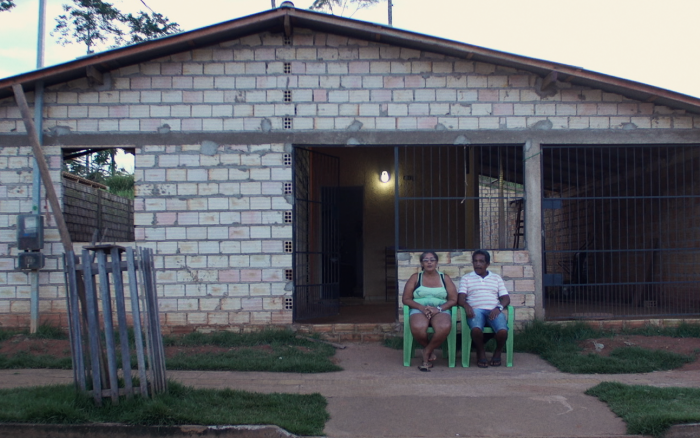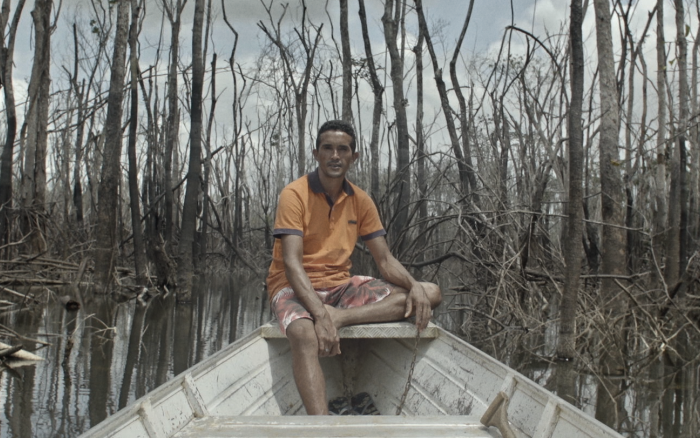Você está na versão anterior do website do ISA
Atenção
Essa é a versão antiga do site do ISA que ficou no ar até março de 2022. As informações institucionais aqui contidas podem estar desatualizadas. Acesse https://www.socioambiental.org para a versão atual.
Great Return: riverines conquer the right to return to their territory after being removed by Belo Monte dam, in Brazil
terça-feira, 24 de Novembro de 2020 
Turning the game
Ableist proposal
Respect for conditioning
Watch now
Esta notícia está associada ao Programa:
The movie released today (24) tells the Riverine Council’s trajectory. In spite of the obligation imposed by the licensing agency, the company Norte Energia has been refusing to comply with the determination even five years after the Operation License.
With global release on November 24th, the movie “Volta Grande” tells the story of the violent removal of more than 300 riverine families for the construction of the Belo Monte Hydroelectric Plant, in Para State (Brazil), up until their organization and victory of their right to return to the river banks.
A population that has not been considered as impacted by the dam, the riverine people became the protagonists in the fight for their rights. The Riverine Territory, a proposal initially conceived by the riverine and debated in a participatory way with Norte Energia, the dam’s manager, was approved by the Institute of Environment and Renewable Natural Resources (Ibama) in November 2019.
It is an unprecedented process in the history of power plant constructions in Brazil: the guarantee of the right to return of the riverines to the river banks, in a resettlement located within the Permanent Preservation Area (APP) of the dam’s main reservoir.
In spite of the obligation imposed by the licensing agency, the company has been refusing to comply with the determination. In September, without any effective effort being made to implement the resettlement, Norte Energia protocolized a new proposal to Ibama that intends to reduce the territory and the number of families benefited.
In the midst of the Covid-19 pandemic, in another violation of the riverines’ rights, the company still threatens to begin repossession proceedings against those who take shelter by the banks of the river, in the Riverine Territory, while awaiting for the realization of their right to return.
The release date of the movie marks 5 years of the issuing of the dam’s Operation License, a project marked by several disastrous social and environmental impacts. Among the accumulated debts, one of the most harmful is the incomplete resettlement of removed families from their homes in Xingu.
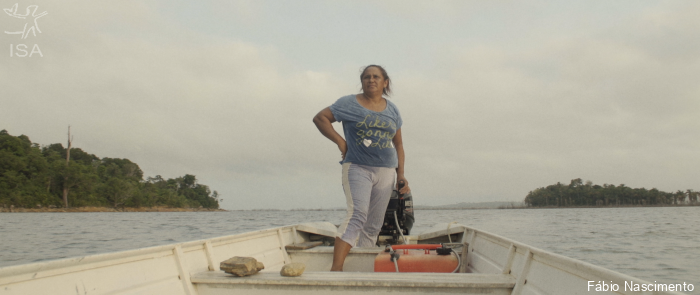
Turning the game
From 2015 on, with Belo Monte dam’s reservoir beginning to fill, the riverine families who lived in the islands and banks of the Xingu river were compulsorily removed from their houses.
Although they have a strong history and a way of life deeply connected to their territory, these were not considered and no appropriate alternative was offered, at the moment of their removal from the Xingu, that allowed them to keep living in the way they used to.
Pushed into the urban center and rural areas of Altamira, distant from the river and the conditions to guarantee their traditional way of life, the riverines fought to have their rights respected and, mainly, to go back to the Xingu river banks.
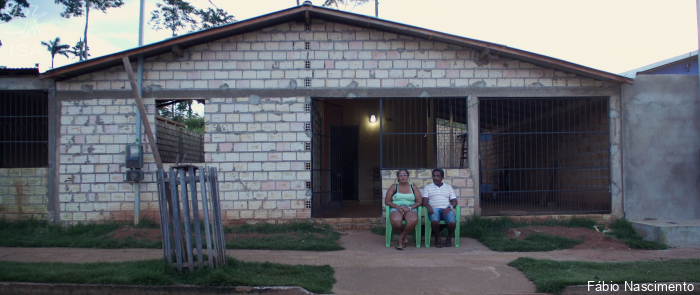
The riverine people have organized themselves among their own peers and created, in December 2016, the Riverine Council. This unique articulation played a fundamental role in the recognition of the displaced families, in the defense of their rights and in the construction of a territorial proposal that would make it possible to reconstruct their way of life. In 2018, Ibama formally recognized the Council as a legitimate part in the dialogue for the construction of the territorial proposal.
“We feel so happy that it feels like we have never left. It was worth it, we will manage to get back to the place we have always lived in”, celebrates Leonardo Batista, Mr. Aranô. He is part of the 194 families that await for the resettlement.
“The story of the Council is an example for the other populations impacted by big infrastructure works that face violations to their rights and the elimination of their identities and ways of life” says Ana De Francesco, anthropologist who is part of the support group for the Riverine Council.
Ableist proposal
To prepare a new territorial proposal, Norte Energia held individual consultations with the riverine families through a “social fragility study”, disrespecting the transparency and the collective process, which should have been done with the participation of the Riverine Council. The company put at risk the right to resettlement of the families recognized by the Council under the excuse that they were not able to return to their original places due to “social fragility” issues - related to the physical and mental health conditions of their members.
In a statement, four organizations, amongst them the Brazilian Association of Mental Health (ABRASME), alongside with six mental and collective health professionals, refute the survey applied by the company and recommend that the study be canceled “so that ableism does not build barriers in the process of occupation of the territory already agreed between the parties”.
“Such issues, thus detailed, besides being supported by an outdated and retrograde comprehension of deficiency, do not consider the way of life of this population, which is based on a community organization.“ says the text.
“Yet, the company does not consider that the permanence of these families in the city, and the long period that they are deterritorialized, are determinant factors of the aggravation of their health conditions and their situation of social fragility”, endorses the psychoanalyst Ilana Katz.
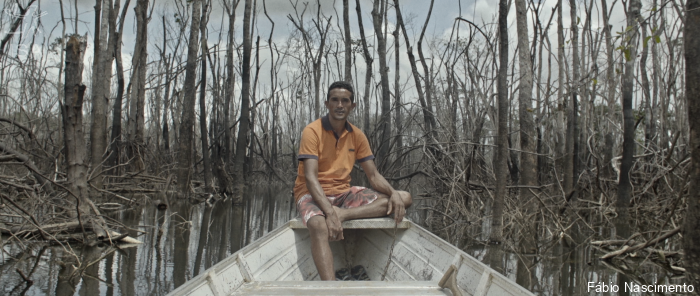
Respect for conditioning
The resettlement of riverines aims to meet condition 2.6 of the Operation License of
Belo Monte, whose premise is to guarantee the restoration and reproduction of the riverine way of life through, above all, the guarantee of its territorial rights. The project was widely discussed and adjusted, being presented to the Riverine Council in June 2019 and approved by Ibama in November of that same year, in the Technical Advice No. 126/2019-COHID / CGTEF / DILIC.
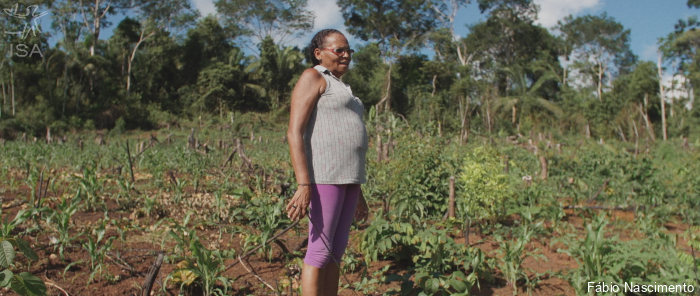
Watch now
“Volta Grande” is now available on Videocamp, an online platform that brings together films with potential impact that can be viewed by anyone, anywhere in the world and free of charge.
Isabel Harari
ISA
Imagens:
Arquivos:
| Anexo | Tamanho |
|---|---|
| 138.66 KB |


